
Join a unique volunteer experience in Otaki Village, nestled in the mountains of Nagano Prefecture. This program provides the opportunity to support local farmers while learning traditional Japanese agricultural practices. Volunteers assist with seasonal farm work, community tasks, and cultural activities, contributing to the preservation of rural life. Experience the warmth of the local community and the beauty of Japan’s countryside.
Program Highlights
Your Schedule at a Glance: (Minimum one-week commitment):
Day 1, Sunday: Arrive at Tokyo Haneda Airport (HND) or Narita International Airport (NRT). You will take a bus independently to the Shinjuku Bus Terminal (12-30 USD) where you will be picked up and taken to your accommodations just outside of Otaki Village.
Day 2, Monday: Orientation day, including a tour of the local area, Japanese language lessons, and an introduction to farming techniques.
Day 3-6, Tuesday-Friday: Mornings begin with farm work such as planting, harvesting, and field maintenance. Afternoons may involve indoor activities like food processing, handicrafts, or snow removal, depending on the season. Evenings include cultural activities such as tea ceremonies, traditional bathing, or community events. Throughout the week, volunteers can join cultural activities (included) such as visits to natural springs, learning to make origami, learning to make sushi, trekking and more!
Day 7, Saturday: Departure day for volunteers staying for only one week. Free day for volunteers extending.
Remaining Weeks: Remaining weeks will follow the pattern of volunteering Monday-Friday and free weekends to explore.






What’s Included




What’s not Included

Japan offers an amazing mix of traditionalism and modernism. From traditional villagers who sleep on tatami mats to the modern city-dwellers of Tokyo, Japan is rich with culture.
This program takes place in the traditional village of Otaki, in the mountainous Nagano Prefecture in central Japan. This region is where the 1998 Winter Olympics were held, and is home to many ski resorts, hot springs, parks and beautiful mountain landscapes, including Mt. Ontake, Japan’s second-highest volcano. The village offers a glimpse into traditional Japanese life, with its historic shrines, family-run farms, and deep cultural traditions. During winter, the region attracts visitors for skiing and snowboarding, while summer provides opportunities for hiking and exploring the countryside.
Volunteers will have the chance to visit local hot springs, trek through the mountains, and experience authentic Japanese hospitality. Pilgrims also visit the area’s sacred sites, drawn by its vibrant spiritual heritage. Despite its rural setting, the village has basic amenities, including small shops and an ATM.

About the Program
The program supports traditional agriculture in Otaki Village, where an aging population relies on volunteers to help maintain farms. As young people migrate to cities, small farms struggle to keep up with demand. Volunteers play a crucial role in preserving local farming traditions while engaging in cultural exchange with the community.
About the Volunteer Tasks
Volunteer tasks vary by season. During spring, summer and fall, most tasks will take place outside and involve fieldwork. During winter months, tasks will be mainly indoors and will focus on the conservation of the harvest and handicrafts. The village families are very traditional and treasure their Japanese culture. They are eager to share their traditions and customs with volunteers, so cultural exchange is also a large part of this program.
Spring, Summer, and Autumn:
Late Autumn:
A Typical Day
Mornings begin with optional farm chores, followed by breakfast with other volunteers. The main work session includes fieldwork, food preparation, or seasonal indoor tasks. After a lunch break, activities continue, often shifting to cultural experiences such as tea ceremonies or origami workshops. Evenings are relaxed, with shared meals and social time in the village.
Note: Schedule may be subject to changes based on weather, local factors, and unforeseen circumstances.





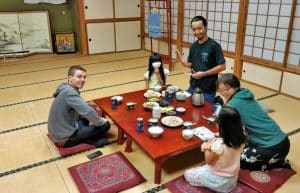
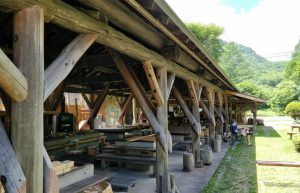

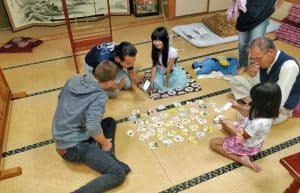
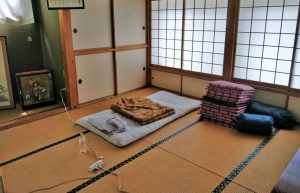
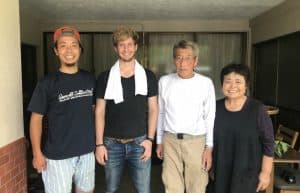
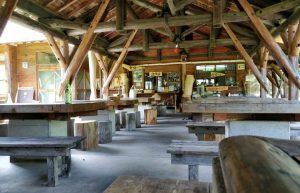
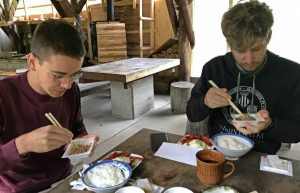


Besides volunteering, the program organizes various cultural and outdoor activities throughout the week, offering volunteers a well-rounded experience of traditional Japanese life. Depending on the season, volunteers can join guided activities such as tea ceremonies, origami workshops, kendo (Japanese sword fighting), and learning the art of Japanese paper-making. The program also arranges visits to natural hot springs, local shrines, and scenic viewpoints. Outdoor adventures include trekking through the mountains, spotting wildlife, and exploring sacred waterfalls.
During free weekends, and at their own expense, volunteers can explore some of Nagano’s top attractions. Highlights include visiting Onsen hot springs, the Snow Monkey Park, where wild monkeys soak in natural hot springs, and various ski resorts, including those that hosted the 1998 Winter Olympics. Cultural sites such as Matsumoto Castle and the historic Zenkoji Temple offer a deeper glimpse into Japan’s history. With a mix of structured activities and free time, volunteers can fully experience the beauty and culture of Otaki Village and its surroundings.

© 2022 GOECO | All rights reserved
Develop & Design | Msite